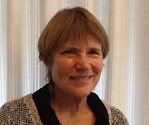Studies indicate that by 2050, the number of older people will increase by 135% above today’s level, and those 85 and over will increase by 350%. A growing aging population is sure to increase the demand for medical care. Innovative health care services can help moderate this impact, but require an investment elsewhere in the healthcare system.
For 30 years Adult Day Health Care (ADHC) services provided a cost-effective way to address the needs of our aging population. By providing daytime health support and social engagement for seniors and adults with disabilities ADHC services are able to monitor health and help them maintain independence. With this comes decreased emergency rooms visits and hospital stays as well as preventing premature placement in nursing homes, all of which cost much more than the amount needed to run ADHC. My organization, SteppingStone Health, provides daily services that include healthcare services such as nursing and social work, therapies such as physical and speech therapy, nutritional lunches, transportation, and activities such as exercise and art therapy.
As SteppingStone and many other ADHC centers, the primary source of funding is Medi-Cal (California’s Medicaid program), and has been a direct target of both federal and state budget cuts. Recently, the courts temporarily reversed a decision that would have eliminated ADHC services and created a newly funded program called Community-Based Adult Services (CBAS). This transition to this new program for the 35,000 beneficiaries in California has been disorderly and too fast, and does not appear to serve all the people eligible for the program.
ADHC services as we have been providing for years are a key to solving the healthcare crises of the future. Programs like SteppingStone provide a significant return on investment by minimizing more expensive higher levels of care. This critical part of meeting the future financial challenges facing both government and private health plans.
Creating access to health support systems that help the elderly manage multiple chronic illnesses upholds their right to age with dignity in their own communities. And that is something every one of us will want as we age.






















